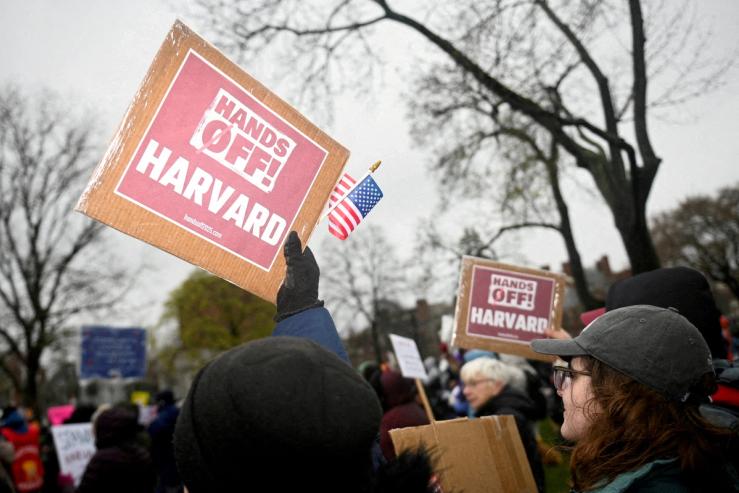what’s at stake
The courts may get the last word on the Trump administration’s high-profile feud with Harvard University.
Last month, the administration moved to freeze more than $2 billion in federal dollars promised to the school in the form of grants and contracts, accusing Harvard of failing “to uphold civil rights laws” and to prevent the mistreatment of Jewish students. The university quickly sued, alleging that the move represents a violation of the First Amendment.
The case landed in Massachusetts federal court, where a judge scheduled oral arguments for July 21. That means the dispute won’t be resolved until at least the summer, and whatever the ruling, it will more likely than not be appealed to the Supreme Court.
But Trump is raising the stakes in the meantime, declaring on Friday that he would also take away the university’s tax-exempt status.
who’s making the case
David Pozen, a Columbia Law School professor, argues that Trump acted unlawfully, accusing him of a “brazen and authoritarian” move:
“The Trump administration’s punitive actions against Harvard are unlawful, just as its actions against Columbia are unlawful. In both cases, the administration invoked Title VI of the Civil Rights Act of 1964 as the basis for terminating grants and contracts, yet the administration did not even make an effort to comply with the statute’s procedural or substantive requirements for such terminations.
“The attempt to control universities’ internal governance arrangements and academic programs also violates a slew of constitutional guarantees, from free speech and due process to the separation of powers and limits on coercive spending conditions. The illegality here is not subtle; it is brazen and authoritarian. For this reason, I expect that the Supreme Court would rule in favor of Harvard (and Columbia), if an appropriate challenge were to come before it.”
Sen. Mike Lee, R-Utah, who served as a lawyer and federal prosecutor before getting elected, argued to Semafor that Trump generally has broad discretion over federal funding and can withhold it when he decides recipients are not meeting the necessary requirements:
“When we appropriate something, we hand it over to the executive. The executive has not only the power but the responsibility to make sure that the law is administered faithfully. And insofar as he sees an entity otherwise entitled to receive federal funding not meeting the requirements for that funding, he’s got discretion to make adjustments to that, to withhold the funding. Those adjustments tend to be sort of in the moment. If there were large swaths of funds in the abstract that he just didn’t spend, then you get into a possible violation of the Impoundment Control Act.
“I’ve become less and less enamored with the Impoundment Control Act over time, in part because of the fact that I think it runs into conflict with what I understand had always been the practice prior to [its passage], which was — presidents viewed appropriated sums as a ceiling, not a floor. And presidents were not only allowed, but sort of expected, to look for ways to bring spending down, if they could spend less than that sum they were permitted to. So that’s why I think we’d be better off without the Impoundment Control Act. But it’s still law.”

